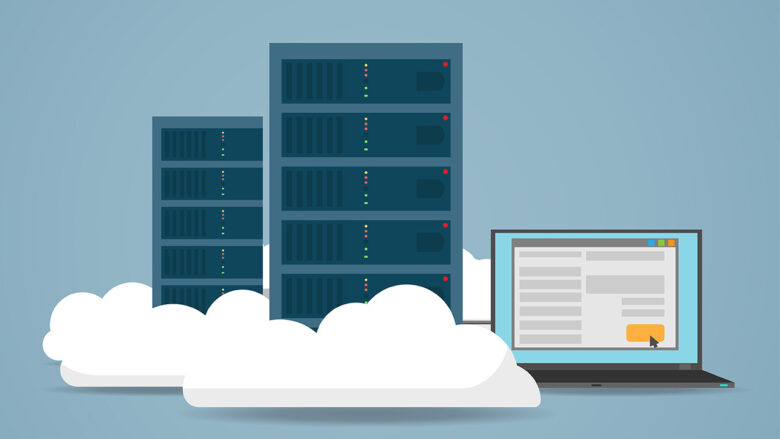The digital landscape is evolving, and with it, the demands on web hosting services to provide robust, efficient, and cost-effective solutions for individuals and businesses alike. As we look towards 2024, the need for reliable web hosting that doesn’t break the bank is more critical than ever. This guide delves into the top affordable web hosting services for 2024, providing you with a comprehensive review of the best options available.
Understanding Web Hosting
Different Types of Web Hosting Web hosting can be categorized into several types, each offering distinct advantages and suited to different needs:
- Shared Hosting: Ideal for beginners and small websites, shared hosting is where multiple sites share the same server resources. It’s the most cost-effective option, perfect for those just starting out or with limited budgets.
- VPS (Virtual Private Server) Hosting: A middle ground between shared and dedicated hosting, VPS provides a virtualized environment for each user. While it’s slightly more expensive than shared hosting, it offers better performance and more customization options.
- Dedicated Hosting: Best for large businesses and high-traffic websites, dedicated hosting gives you a server all to yourself, offering maximum control and the best performance.
- Cloud Hosting: Highly scalable and reliable, cloud hosting allows your site to use the resources of multiple servers, reducing the chances of downtime and performance issues.
Why Quality Web Hosting Matters The quality of your web hosting directly impacts your website’s performance, security, and uptime. Good hosting ensures that your site remains accessible around the clock, secures your data, and loads quickly for visitors, which is crucial for user experience and SEO.
Criteria for Choosing a Web Host
Key Features of Affordable Hosting When searching for an affordable web hosting service, consider the following essential features:
- Storage and Bandwidth: Ensure you have enough storage for your website files and sufficient bandwidth to handle your traffic.
- Uptime Guarantee: Look for services that offer at least 99.9% uptime, ensuring your site is always available.
- Customer Support: Accessible and knowledgeable support can save you a lot of trouble if you encounter issues with your hosting.
- Security Features: Adequate security measures like SSL certificates, backups, and firewalls are necessary to protect your site and visitors.
Assessing Hosting Needs Before choosing a web host, evaluate your specific needs:
- Website Type and Size: The type and size of your website will determine the kind of hosting you need.
- Growth Expectations: Consider your potential growth in the near future so that your hosting can scale accordingly.
- Technical Requirements: Some websites may require specific technologies; make sure your host supports them.
Review of Top Web Hosting Services
This section will compare various providers based on the types of hosting they offer and discuss their strengths and weaknesses.
Shared Hosting Providers
- Bluehost: Known for its excellent customer service and low cost, Bluehost is a favorite among many small website owners.
- HostGator: Offers a range of inexpensive plans, making it a great option for those on a budget.
VPS Hosting Providers
- InMotion Hosting: Provides reliable VPS services with great scalability options at a reasonable price.
- A2 Hosting: Known for its speed and reliability, A2 Hosting offers VPS services that are slightly pricier but offer superior performance.
Dedicated Hosting Services
- SiteGround: While it’s generally known for shared hosting, SiteGround also offers competitively priced dedicated servers with excellent support.
Cloud Hosting Innovations
- DigitalOcean: Focuses on simplicity and scalability, making it an ideal choice for developers and medium-sized businesses.
- Amazon Web Services (AWS): Offers extensive and powerful cloud hosting solutions that cater to all sizes of businesses, though it can be more complex to manage.
Features to Expect in 2024
Security Enhancements With the increasing threat of cyberattacks, hosting services are expected to enhance their security measures, incorporating more advanced firewalls, intrusion detection systems, and regular security audits to protect user data.
Speed and Performance Technological advancements like HTTP/3, the latest network protocol, are set to improve the speed and performance of hosted websites, reducing load times and improving user experience.
Customer Support Trends AI-driven customer support, including chatbots and automated responses, are becoming more prevalent, offering users quick and efficient problem-solving tools.
Cost Analysis
Budgeting for Web Hosting The cost of web hosting varies widely based on the type of hosting and the features you choose. Shared hosting can start as low as a few dollars a month, while dedicated hosting can cost hundreds. It’s essential to consider your budget and the cost-effectiveness of each option.
Comparing Cost vs. Value While affordability is crucial, consider what you’re getting for your money. It may be worth paying a bit more for hosting that offers better security, more features, and better performance.
User Reviews and Feedback
Positive Reviews User reviews often highlight the reliability, customer service, and ease of use of hosting services, which can be helpful indicators of quality.
Criticisms and Issues On the flip side, common criticisms often relate to customer service issues, billing practices, and technical problems. Paying attention to these can help you avoid poor service providers.
Making the Right Choice
Checklist for Web Host Selection
- Define your hosting needs.
- Compare features and prices.
- Read user reviews and expert opinions.
- Check for any additional fees or service terms.
Future-proofing Your Hosting Choosing a web host that offers room to grow, supports new technologies, and provides continuous updates will ensure that your hosting setup remains robust and relevant as your needs evolve.
Conclusion
Choosing the right web hosting service is crucial for the success of your website. By understanding the different types of hosting available and what features to look for, you can make an informed decision that balances cost, performance, and scalability. As we move into 2024, staying ahead of technological advancements and industry trends will help you get the most out of your web hosting provider and ensure your site remains competitive and secure.



